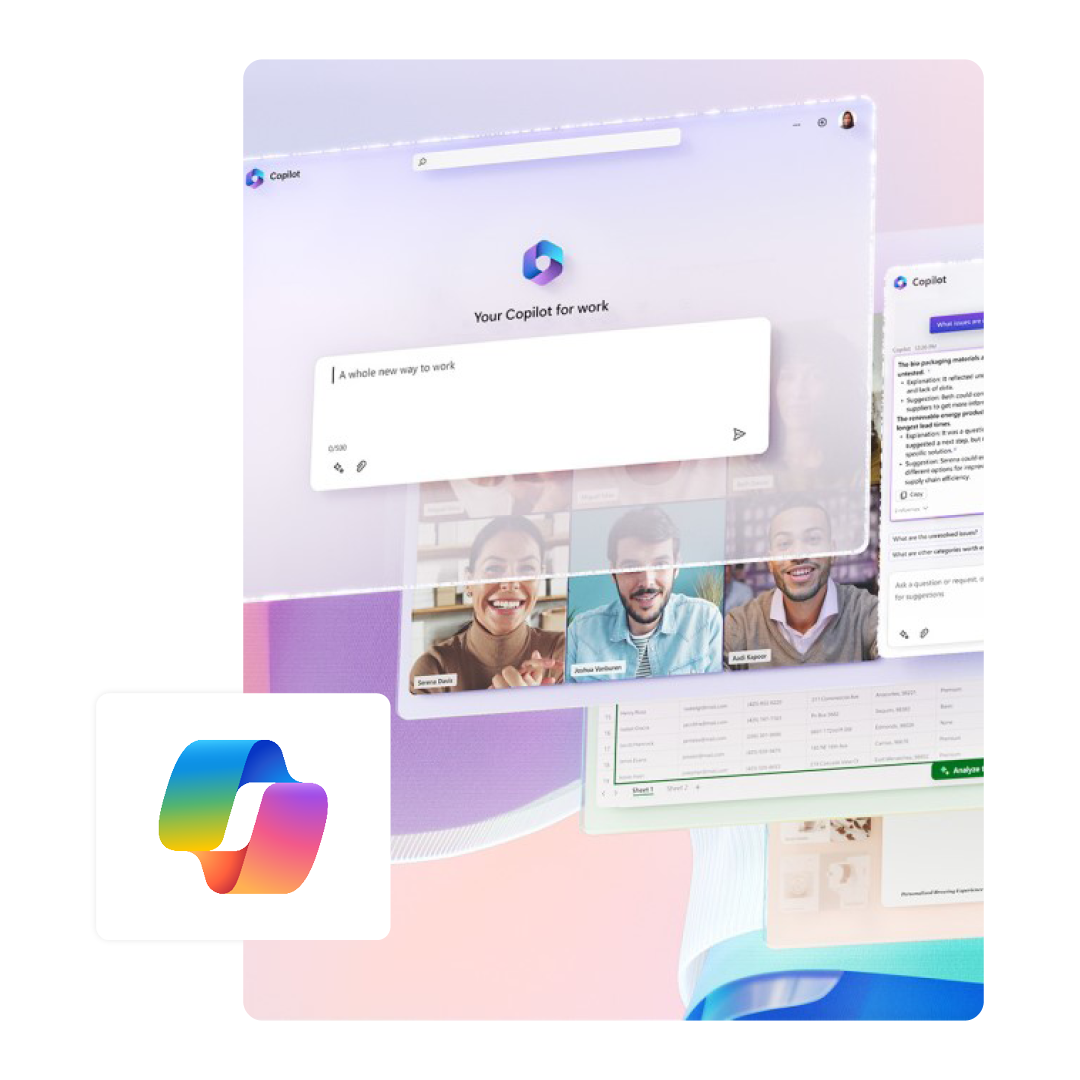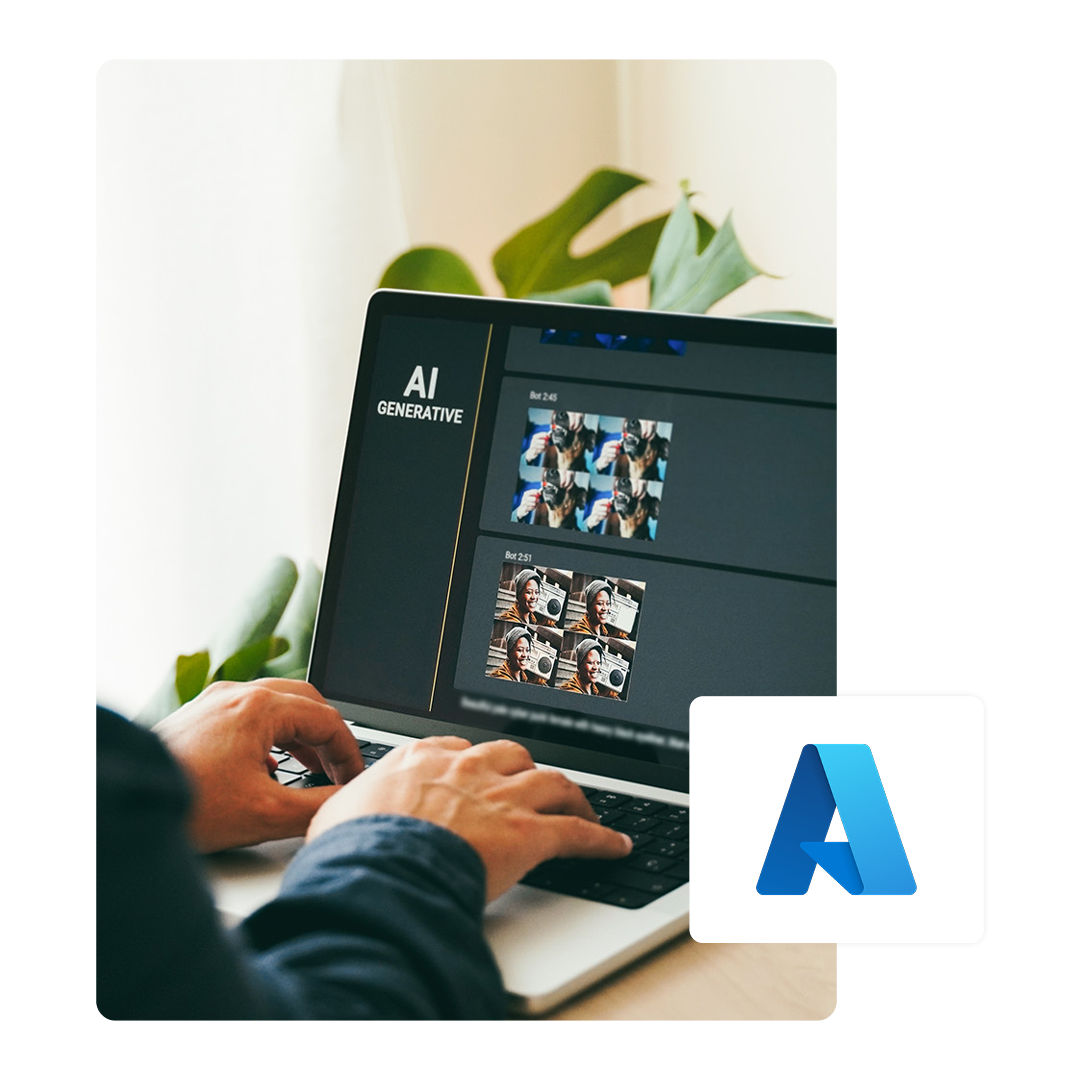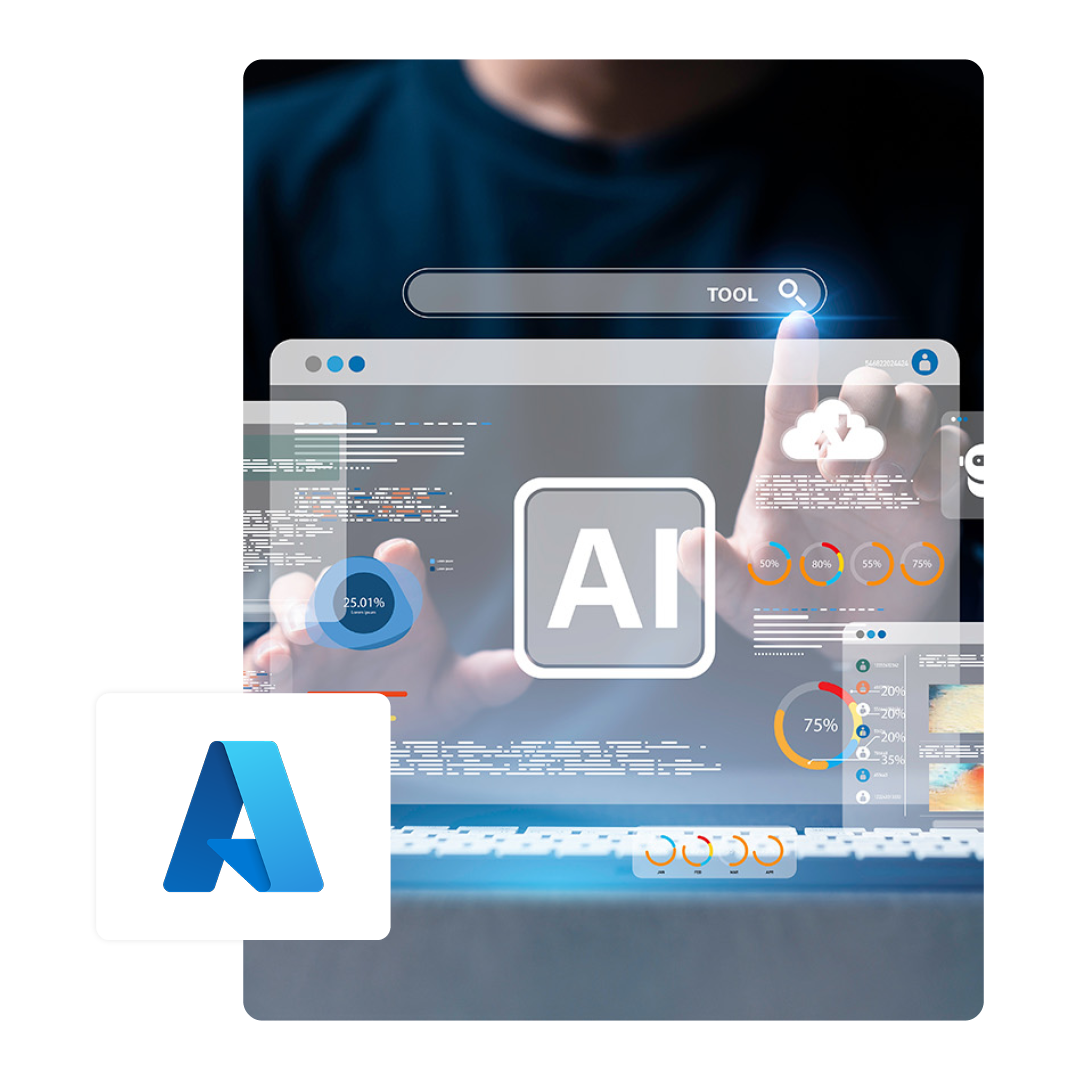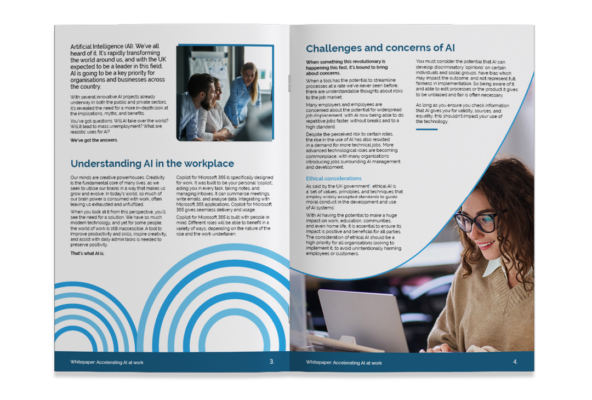The integration of artificial intelligence (AI) in the workplace has become more than just a trend – it’s a strategic imperative. As organisations strive to enhance efficiency, productivity, and decision-making processes across everything they do, AI is emerging as a potential solution.
What is artificial intelligence (AI)?
AI is the simulation of human intelligence by machines and computer systems and includes processes such as learning, reasoning, problem-solving, perception, and language understanding.
AI utilises large volumes of data, whether that’s your organisation’s personal data or data accessible through the internet, to recognise patterns and make decisions based on that data.
By encompassing techniques, including machine learning and natural language processing, AI has the versatility and ability to adapt to new information. This makes it a powerful tool for enhancing different aspects of an organisation’s operations, such as automating routine tasks, data analytics, and decision-making.
Our AI offerings
Copilot for Microsoft 365 integrates with popular Microsoft 365 applications, enabling you to create engaging presentations, take notes from Teams calls, automate complex Excel sheets, and write documents. Using natural language conversations, Copilot for Microsoft 365 will take your questions, suggestions, and prompts to generate content from your data.
Copilot for Microsoft 365
The Azure AI and Applied AI services are a comprehensive family of out-of-the-box and customisable APIs and scenario-based services, that help you rapidly create intelligent, cutting-edge, market-ready, responsible solutions. You can also customise these models with your own data and fine-tune to increase accuracy and relevance.
The Azure OpenAI service is a cloud-based platform that enables you to build intelligent applications with cutting-edge AI models from OpenAI. Use these models for various use cases, such as conversational AI, content creation, data grounding, and more. Customise these models with your own data and fine-tune them to increase accuracy and relevance.
Microsoft Azure OpenAI Service






Free whitepaper: Accelerating AI in the workplace
Get your free whitepaper now to discover the role AI plays in transforming workplaces across the world, and how to ensure your organisation utilises it in the best way possible while maintaining your ethical commitments.


How is your industry utilising AI?
One of the many interesting aspects of AI in the workplace is how different industries are discovering how they can utilise AI to automate processes, enhance user experiences, and improve productivity across major operations.
While some of the integrations of AI in a sector are very specific to their needs, some sectors are finding that some applications are easily transferable and solve a common problem. Take a look at how some sectors are using AI currently:
In a sector like healthcare where time is a precious commodity, AI is enabling doctors and nurses to streamline their day-to-day tasks, predict future risks, and offer assistance through chatbots and virtual assistants.
- Medical imaging: by analysing X-rays and CT scans, AI has the ability to accurately analyse these and aid in detecting issues and speeding up diagnosis
- Tailored treatment: by analysing large amounts of data, healthcare can provide personalised treatment plans to patients and predict disease risks
- Automated chatbots and virtual assistants: answer patient queries, manage appointment scheduling, automate administrative tasks, and reduce the burden on healthcare professionals with chatbots that are there for you around the clock


Improving customer experiences is at the top of many retailers’ priorities and AI has the capability to provide this through unique shopping experiences, data-driven decision-making, and virtual customer assistants.
- Unique shopping experiences: put the right products and services in front of the right customers at the right time by allowing AI to analyse their personal data
- Accurately forecast demand: optimise your inventory management and reduce holding costs by predicting when you need stock readily available
- Virtual customer assistants: answer your customers questions and queries and build brand loyalty through AI-powered chatbots


Optimise the way your students learn and develop with tailor-made content and learning paths, while streamlining your staff’s workload with automated grading.
- Tailor-made content and learning paths: give students a pathway for learning that meets their unique challenges and is optimised to how they learn best
- Automated grading: give precious time back to teachers for student engagement and lesson planning by automating the grading of assessments, homework, and exams
- Analytics for understanding learning: ensure each student is optimising their learning by analysing their performance and unveiling patterns and trends


Banks and financial services deal with copious amounts of data, and while analysing this and spotting trends is increasingly important, it takes up a large amount of time. Implementing AI will make spotting these trends easier and free up time for specialists to work on tasks only a human can complete.
- Automated investment advice: by analysing patterns and trends in the market, AI has the capability to predict possible investments and execute trades
- Detecting fraud: analysing patterns also applies to preventing fraud as AI can spot anomalies and identify any potentially fraudulent activities
- Virtual assistants: virtual assistants are increasingly used within the financial sector to answer simple customer queries and provide instant responses


The importance of ethical AI in the workplace
While the potential of AI is immense, it also raises ethical considerations that cannot be overlooked by both organisations and individuals. As AI systems become more autonomous, ensuring they operate ethically and responsibly becomes paramount.
Key aspects of ethical AI in the workplace include:
- Reduction of human values and opinions
- Legal liability
- Bias and discrimination
- Lack of structure
Overlooking ethical AI is a mistake many organisations are already beginning to make. Prevent costly, reputational, and business-related damage by practicing safe and ethical AI use.
Phoenix Software for your AI needs
At Phoenix, we have the expertise and experience to help you leverage the power of AI for your organisation. We’re able to help you:
- Define your AI strategy and roadmap, identifying initial use cases for AI
- Assess your current IT infrastructure and readiness for AI
- Implement and integrate AI solutions with your existing systems and processes
- Manage and optimise your AI solutions for performance and cost
We are committed to delivering remarkable outcomes for our customers by building true partnerships based on trust and transparency.
AI in the workplace FAQs
AI allows computers to learn and solve problems similarly to how a human would. These systems are trained on vast amounts of information and learn to identify patterns, enabling them to carry out tasks such as having human-like conversations, identifying trends, and completing routine tasks.
While the two are closely related fields, they have some distinct differences. AI is a broad concept that encompasses the creation of machines or systems capable of performing tasks that typically require human intelligence. Machine learning, on the other hand, is a subset of AI focused on the idea that machines can learn from data, identify patterns, and make decisions with minimal human intervention.
Assessing AI readiness involves evaluating data quality, leadership support, technical expertise, scalability, and compliance. These factors ensure AI implementation aligns with your organisations goals and mitigates risks.
Start your AI journey now





















